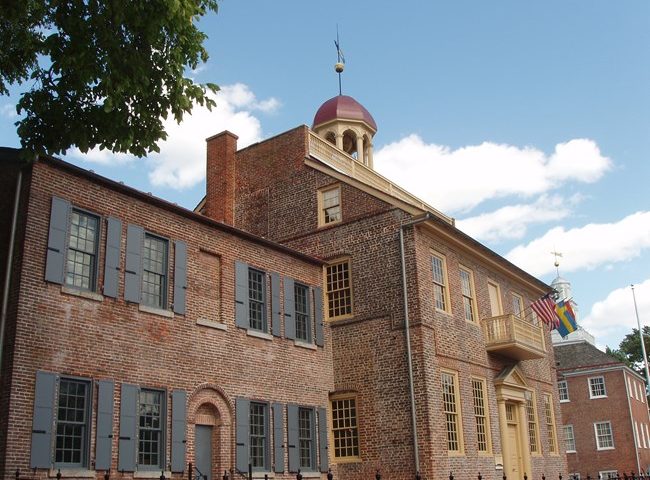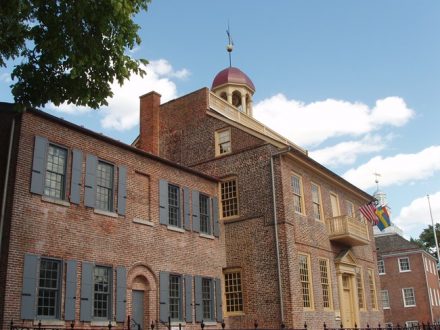
How Long Do You Have to File a Complaint in District Court Once a Refund Claim is Rejected by the IRS?

What Is An IRS Jeopardy Levy?
A “Local Action” is an action that must be brought in the state where the property is located. A taxpayer or third party seeking to clear title to property must be careful to choose the right venue, which generally means filing in a court which sits in the same judicial district where the property is located, or risk running afoul of jurisdictional as well as venue issues.
“The federal district courts’ jurisdiction over actions concerning real property is generally coterminous with the states’ political boundaries.” United States v. Byrne, 291 F.3d 1056, 1060 (9th Cir. 2002). When a taxpayer or third party seeks to quiet title to real property located in a state, under the local action doctrine, a local action involving real property, as opposed to a transitory action, must be brought within the territorial boundaries of the state in which the land is located. Trust Co. Bank v. United States Gypsum Co., 950 F.2d 1144, 1148 (5th Cir. 1992), citing Hayes v. Gulf Oil Corp., 821 F.2d 285, 287 (5th Cir. 1987). As stated by the Honorable Judge Margaret M. Morrow in Prawato v. Primelending, “courts in [the Ninth Circuit] treat the local action doctrine as foreclosing subject matter jurisdiction where it applies.” 720 F.Supp.2d 1149, 1153 (C.D. Cal. 2010), citing Columbia River Packers’ Association v. McGowan, 219 F. 365 (9th Cir. 1914), and Byrne, 291 F.3d at 1060. See, e.g., MacCarley v. Countrywide, 2010 U.S. Dist. LEXIS 77368 (C.D. Cal. 2010, Hon. Dolly M. Gee) (Unpublished. Order to show cause why action should not be transferred to Hawaii, as a local action to that state – ordered transferred at Document 57, Case No. 2:09-CV-04677). The court in Prawato also noted the Supreme Court’s holding that the local action doctrine supersedes statutory venue provisions without Congress’ clear expression that the statute takes precedence. 720 F.Supp.2d. at 1152-53 (citing Casey v. Adams, 102 U.S. 66, 26 L.Ed. 52 (1880).
Determining Whether an Action Challenging a Federal Tax Lien is “Local”
To determine whether an action is local, courts in the Ninth Circuit have looked to the law of the state. Prawato, 720 F.Supp. at 1154-55, citing Josevig-Kennecott Copper Co. V. James F. Howarth Co., 261 F. 567, 569 (9th Cir. 1919) and Miller & Lux Inc. V. Nickel, 149 F.Supp.2d 463, 467 (N.D.Cal. 1957). Section 392(a)(1) of the California Code of Civil Procedure is the relevant provision for this determination, and defines a local action as one for the determination of a right or interest in real property. Cal. Code Civ. Proc. § 392(a); Prawoto, 720 F.Supp.2d at 1155. A quiet title action is within the definition contained in section 392, which is broader than the constitutional provision it replaced, former Cal. Const., Art. VI, § 5, which specifically enumerated such actions. See Prawoto, 720 F.Supp. 1149. Actions to quiet title are clearly local in nature. See Id. at 1157 FN8 (“There is no question that Prawato seeks remedies that affect title to the Texas land; he [sic] seeks, in fact to quiet title in her favor.”). See also Sherrill v. McShan, 356 F.2d 607, 610-11 (9th Cir. 1966)(affirming Arizona district court’s finding that it was without jurisdiction to quiet title action for lands in California).
The Local Action Doctrine is Jurisdictional for Federal Actions to Quiet Title
The local action doctrine is considered jurisdictional in the 9th Circuit. Prawoto, 720 F.Supp.2d at 1153, citing Columbia River Packers’ Association, 219 F. 365, and Byrne, 291 F.3d at 1060. Jurisdiction must be found over the subject matter before one reaches venue. See Bookout v. Beck, 354 F.2d 823, 825 (9th Cir. 1965) (discussing § 1391(a)). Thus, the Supreme Court has held that the local action doctrine supersedes statutory venue provisions without Congress’ clear expression that the statute takes precedence. Prawoto, 720 F.Supp.2d. at 1152-53 (citing Casey v. Adams, 102 U.S. 66, 26 L.Ed. 52 (1880)).
28 U.S.C. Section 1391(e) clearly contemplates use of the local action doctrine in the determination of venue. See 28 U.S.C. § 1391(e)(4) (action may be brought where “the plaintiff resides if no real property is involved in the action.” Emphasis added.). Before 1962, the federal venue statute required actions against the United States to be brought in the District of Columbia. Santa Fe Int’l Corp. v. Watt, 580 F.Supp. 27, 29 (D. Del. 1984). In expanding section 1391, Congress expressed an interest in having local judges resolve disputes affecting local land, stating, “These are problems with which judges in those areas are familiar and which they can handle expeditiously and intelligently.” Sen. Rep. No. 1992, 87th Cong., 2d Sess., 1962 U.S.C.C.A.N. at 2786; Shell Oil Co. V. Babbitt, 920 F. Supp. 559, 566 (D. Del. 1996) (quoting same and explaining); Landis v. Watt, 510 F. Supp. 178, 180 (D. Idaho 1981). See also Ferguson v. Lieurance, 565 F. Supp. 1013, 1015 (D. Nev. 1983)(citing Landis).
28 U.S.C. § 1391(e) was amended again on Dec. 1, 1990, to substitute “(2) a substantial part of the events or omissions giving rise to the claim occurred or a substantial part of the property that is the subject of the action is situated” or (3) for “or (2) the cause of action arose, or (3) any real property involved in the action is situated, or (4)”. In making this change, congress stated that the “substantial part” language was added to remove the implication that there was only one district in which a multi-forum transaction may arise, noting that “Congress used the same phrasing in a 1976 amendment designating venue in actions against foreign states.” 136 Cong. Rec. S. 17570, 101st Cong., 2d Sess., 1990. There is nothing in the legislative history to suggest that the intent behind the 1962 amendment regarding local land was abandoned. Although courts interpreting the venue subsection with relation to foreign states (subsection 1391(f)) have read the term “property” to include items such as cash absent a real property interest (see, e.g., Kalamazoo Spice Extraction Co. v. Provisional Military Government of Socialist Ethiopia, 616 F.Supp. 1536, 1543 (S.D. Tex. 1987)), courts interpreting subsection 1391(e) after the 1990 amendment still apply the local action doctrine where real property is involved. See, e.g., Shell Oil Co., 920 F. Supp. at 566; and unpublished decisions in district courts in the Ninth Circuit, including, Ctr. For Biological Diversity v. United States BLM, 2009 U.S. Dist. LEXIS 34249 (N.D. Cal 2009); Forest Conservation Council v. Madigan, 1992 U.S. Dist. LEXIS 21805, 5-7 (D. Or. 1992)(finding it also should be transferred per section 1404(a)
Thus, application of the federal venue statute depends on whether the action is local or transitory. Raphael J. Musicus, Inc. V. Safeway Stores, Inc., 743 F.2d 503, 505-506 (7th cir. 1984).
Property in Different States Subject to Federal Tax Lien: Where Real Property is Outside California but Personal Property is Located Within California, California’s Venue Provisions Divest Local Courts of Venue
The Ninth Circuit looks to the law of the state to determine whether an action is local (Prawoto, 720 F.Supp. at 1154-55, citing Josevig-Kennecott Copper Co. V. James F. Howarth Co., 261 F. 567, 569 (9th Cir. 1919) and Miller & Lux Inc. V. Nickel, 149 F.Supp.2d 463, 467 (N.D.Cal. 1957)). Cal. Code of Civ. Proc. § 392 is the relevant provision and includes quiet title actions (Prawoto, 720 F.Supp.2d at 1155 ) where a plaintiff seeks to quiet title to real property. If there is personal property in California and real property in another state, the location of the real property will divest the California court of Venue under Cal. Cod. Civ. Proc. § 760.050. The Law Revision Commission Comment described Section 760.050 as “consistent with the general venue provisions of Section 392″ and the section itself provides:
Subject to the power of the court to transfer actions, the proper county for the trial of an action under this chapter [Chapter 4: Quiet Title] is: (a) where the subject of the action is real property or real and personal property, the county in which the real property, or some part thereof, is located. … .
(Emphasis added.) Thus, even if personal property is in a California court’s jurisdiction, the action is still defined as local to where the real property sits under California law – and, therefore, 9th Circuit authority requires the action be brought in the state where the real property sits. Furthermore, “because the local action doctrine vests exclusive jurisdiction over actions involving land in the forum where the land is located, a federal court not sitting in that forum cannot exercise supplemental jurisdiction over that claim.” Prawoto, 720 F. Supp.2d at 1157.
Clearly, one seeking to quiet title to property against which the IRS has asserted a Federal Tax Lien, must be cognizant of proper venue before bringing an action in order to ensure the local action doctrine does not pose a jurisdictional barrier to resolution of the claim.
-Daniel W. Layton, the author of this post, is a former IRS trial attorney and former Federal prosecutor who was tasked with handling criminal tax prosecutions and civil litigation including tax refund suits, lien enforcement and foreclosures. As a tax attorney in private practice in Newport Beach, he uses his knowledge of IRS procedures and rules to keep the IRS in check and protect his clients’ rights. He may be contacted at (949) 301-9829.


